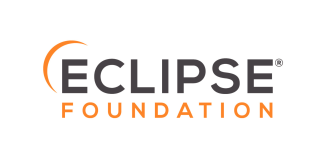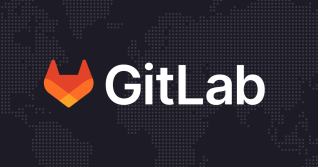Sorry to keep banging on about it, but we get pretty excited when open source projects tell us they’re #movingtogitlab. There’s always more room at our inn. So we’re very happy to welcome freedesktop.org into the fold! We chatted to Daniel Stone, project administrator, about what the project does and why they’re joining us.
Q & A
- What is freedesktop.org?
- How is freedesktop.org used?
- What's the connection between freedesktop.org, X Window System, and Linux?
- How many contributors work on the project?
- Why would someone use freedesktop.org instead of macOS or Microsoft Windows?
- Why are you migrating to GitLab?
- How are you anticipating the move to be beneficial?
What is freedesktop.org?
Created in 2000 by Havoc Pennington (a GNOME developer), freedesktop.org (or fd.o) is a forge-type hosting site. The idea was to create a neutral collaboration space between GNOME, KDE, Enlightenment, and other open source desktops. Unlike integrated systems, like Windows and macOS, the open source desktop lacks a lot of shared foundations: what should you open files with, how should you manage windows, and so forth.
Originally fd.o was a home for these desktop developers to collaborate on common standards, so programs could run portably with the same functionality across different desktops. In 2004, xwin.org was formed by a group of open source graphics developers unhappy with the closed-shop state of the XFree86 project. The two projects of fd.o and xwin.org merged shortly after xwin.org’s founding, with fd.o playing host to the X.Org Foundation, which supervises and facilitates the ongoing development of the graphics stack.
Over the years since, our role as a neutral home for all sorts of desktop technology development has seen us add projects such as GStreamer, LibreOffice, and PulseAudio to our diverse family. Some projects such as systemd and Flatpak originally began their development on fd.o, but moved out to other hosting platforms which better suited their needs and workflow.
How is fd.o used?
Most of our projects are invisible to users: NetworkManager is probably responsible for driving your Wi-Fi under the hood, though you’re unlikely to interact with it directly. Mesa and Wayland/X.Org will provide the underlying plumbing to render your games and your whole UI, but these are mostly invisible. Your desktop probably leans heavily on the D-Bus message-passing system. Most of it is plumbing.
What's the connection between fd.o, X Window System, and Linux?
As part of the graphics stack, fd.o hosts the development of the Linux kernel’s graphics development: drivers from all vendors part of the mainstream kernel (and some which aren’t yet!) use our Git hosting, mailing lists, bug tracking, and other services to build the core kernel graphics infrastructure. All this development happens on our infrastructure, which is then fed into the core Linux kernel during its "merge window" every release.
The X.Org Foundation tries to enable the work of a wide body of open source graphics projects. Originally X.Org itself was just the X Window System, but over the years the code evolved out of X.Org into a number of enabling projects. These include not just alternative window systems such as Wayland, the Mesa 3D graphics library for hardware-accelerated OpenGL, OpenGL ES and Vulkan, Cairo and Pixman for software rendering, libinput for input device handling, and much more. We play host to all those projects, with the Foundation providing an accountable body for administrative work, conference organization, and so on.
Other freedesktop.org projects, as said before, provide all the glue around the margins of your desktop. Providing a database of available applications and preferred MIME type handlers, network device management, inter-process communication, a PDF renderer; in general, all the things we can do well in one place, to enable people who want to write desktop environments to focus on the thing that matters to them: building the actual desktop!
As part of this, we’ve always tried to stay strenuously vendor-neutral and also project-neutral within the desktop community. Rather than "picking winners" or enforcing directions on external projects, we try to slowly and gently build consensus as a neutral forum.
How many contributors work on the project?
Hard to say! We have around 1,300 registered users who directly commit to our family of projects. Not all of them are active of course, but many developers do not have direct commit access and aren’t represented in that figure. We have around 25,000 people subscribed to our various development mailing lists.
Why would someone use fd.o instead of macOS or Microsoft Windows?
Much like GitLab, freedesktop.org is an open source, open-participation, neutral platform. Running an open source desktop through distributions such as Arch, Debian, Fedora, or Ubuntu – all of which use our enabling technology – gives the user a fully open source system. This is incredibly empowering: as a user, you have the ability to dive into any part of your system, make the changes you want to see, and participate openly in these projects to see your improvements work upstream.
As a user, you have the ability to dive into any part of your system, make the changes you want to see, and participate openly in these projects to see your improvements work upstream
Why are you migrating to GitLab?
Over the years fd.o has been running, we’ve accumulated a wide variety of services: our LDAP-based account system forked back in 2004, Bugzilla for issue tracking, Mailman for mailing lists, cgit and hand-rolled Git hosting, Patchwork for pulling patches from the mailing list when they are submitted for review, Jenkins for build infrastructure, ikiwiki for project wikis, still an FTP server somewhere; the list goes on.
In terms of workflow, we simply can’t provide some of our projects the workflow they want with this infrastructure. Over the years since we begun, the norm of software development has moved from throwing patches around via email, to fully distributed version control with integrated review and issue tracking, and so on. On paper we provide those services, but integration between them involves a lot of duct tape, and this shows to the users. We saw multiple projects either leave fd.o and move to alternate hosting platforms, or just not develop on our infrastructure to begin with, because we weren’t offering anything like the same level of functionality and convenience as those services.
Over the years, the norm of software development has moved from throwing patches around via email, to fully distributed version control with integrated review and issue tracking, and so on. On paper we provide those services, but integration between them involves a lot of duct tape, and this shows to the users.
One of the issues with freedesktop.org being such a diverse family, is that there is no central driven organization behind it. The site is currently run by three volunteers, all of whom keep the site running in our spare time. Maintaining all these services – many of them forked to add now-essential features like spam prevention, as well as our own custom local work for service integration – takes a surprising amount of time, to the point where just keeping it running is about all we can do. Actual improvements are very difficult to implement in the time we have, and even when we can do them, making sure all our projects can take full advantage of them is sometimes too much for us.
How are you anticipating the move to be beneficial?
Firstly, for the workflow, having linked repository management, issue tracking, code review, CI pipelines and feedback, container repositories, wikis, and websites, provides functionality we couldn’t before – or at least, we were providing a pale imitation of it. As all of this is provided in GitLab Core and backed by a single coherent permission model, we are able to open these services up to our member projects who can work with them autonomously, rather than waiting for the admins to deal with services for them.
From an admin point of view, having a single application which takes care of all of this will drastically reduce the time we spend treading water and dealing with the impedance mismatch between the disparate services we’ve had until now. Bringing GitLab up on Kubernetes has not been without its challenges as we attempt to bring our service administration skills up into the 21st century, but already it’s shown us that we can move drastically quicker than we have been able to in the past.
From an admin point of view, having a single application which takes care of our entire workflow will drastically reduce the time we spend treading water and dealing with the impedance mismatch between the disparate services we’ve had until now
In terms of service modernization, another huge improvement is a modern approach to identity and security. Running an open community site in 2018 is not a fun place to be: not just keeping on top of security vulnerabilities, but targeted break-in attempts and spam. A lot of our previous services aren’t designed to deal with this kind of abuse. Having a single identity service on GitLab – which can link to external identity providers such as Google and GitLab.com, and make use of two-factor authentication – is a huge leap forward for us. Similarly, a coherent approach to spam which doesn’t involve spending an evening trawling through SQL tables by hand makes dealing with spam actually practical!
How can people get involved?
Since we are an umbrella of diverse projects, there's no single answer. We keep a list of our active projects on our website: pick the one that's closest to your heart, check out their site and repo, and send your first MR.



